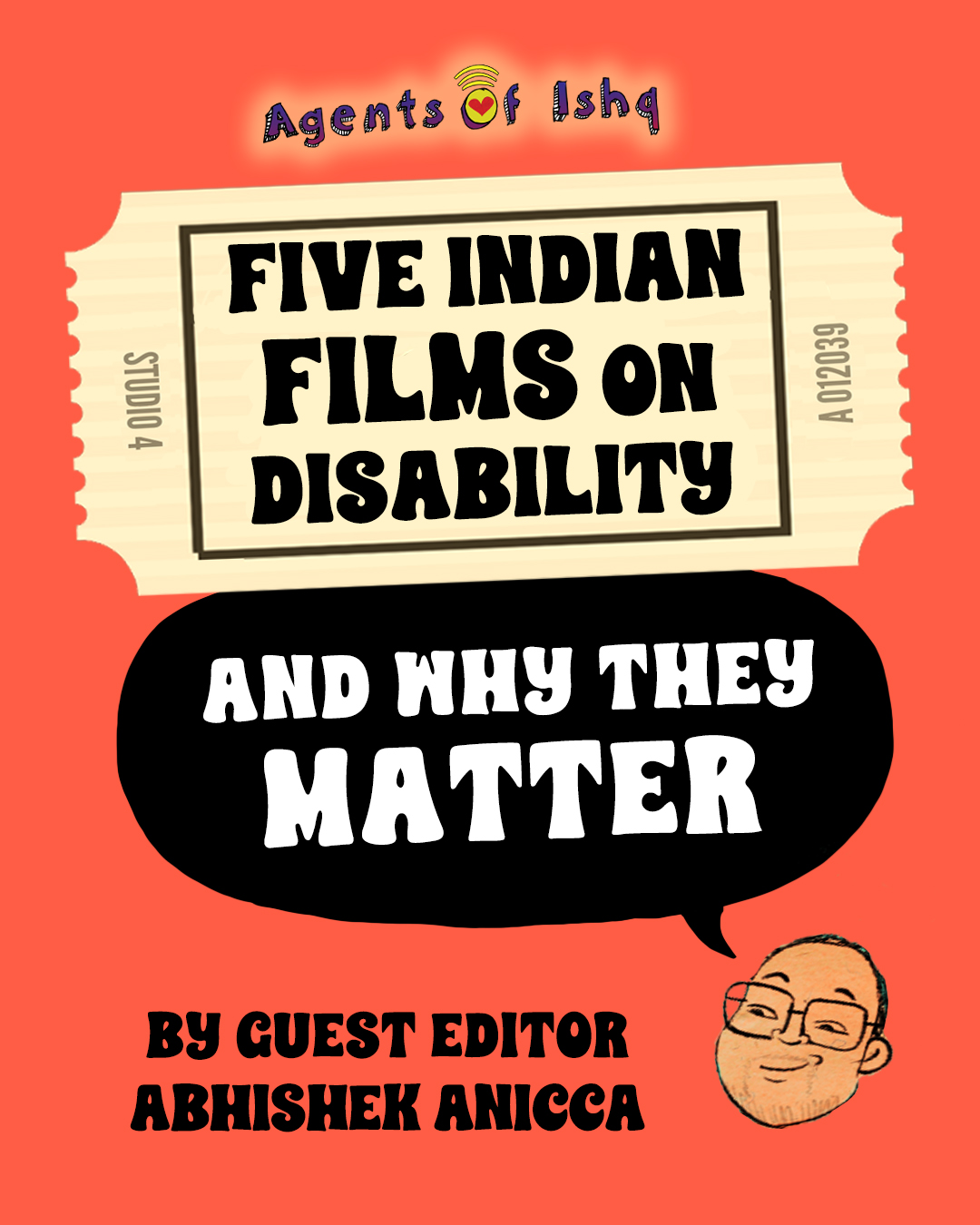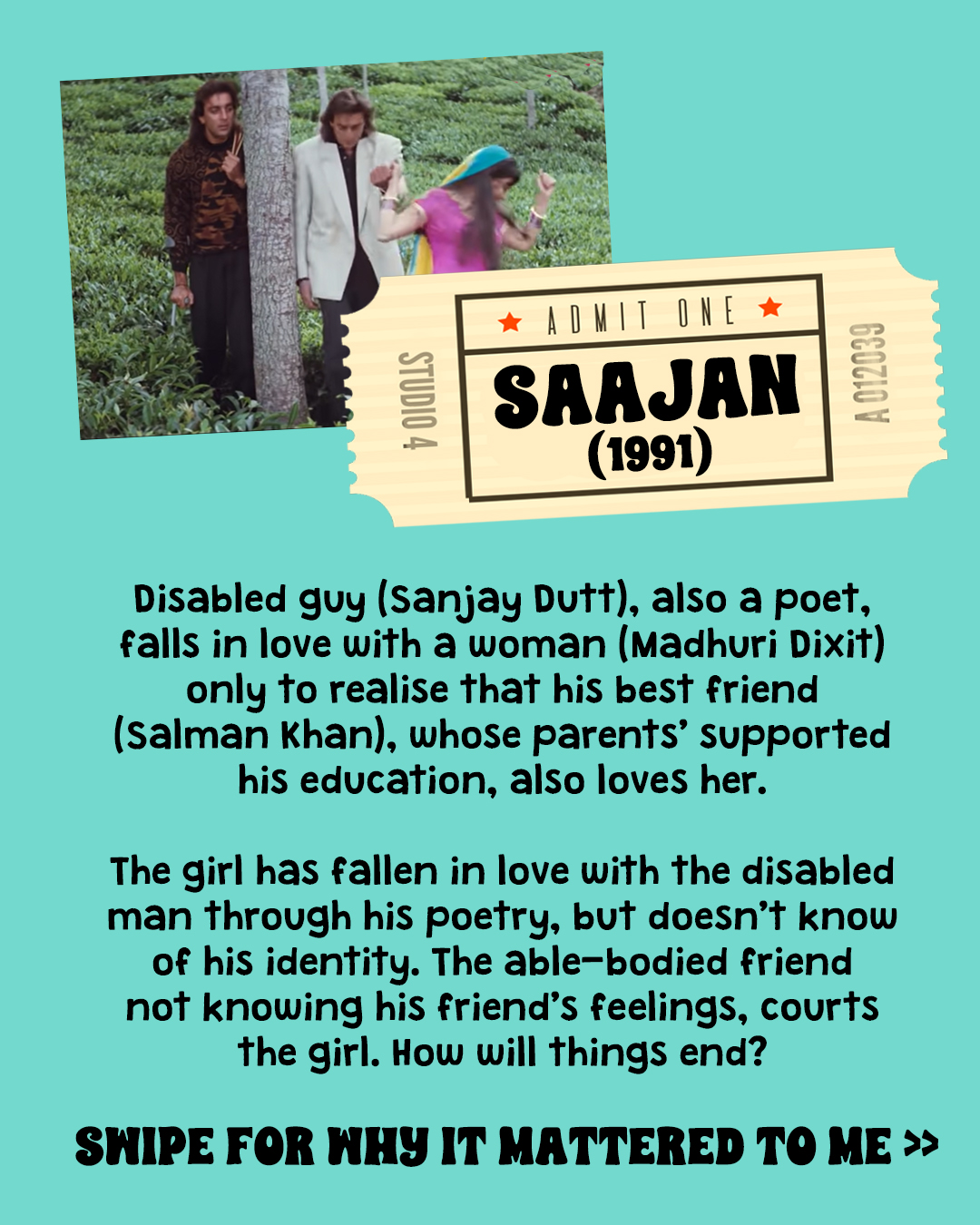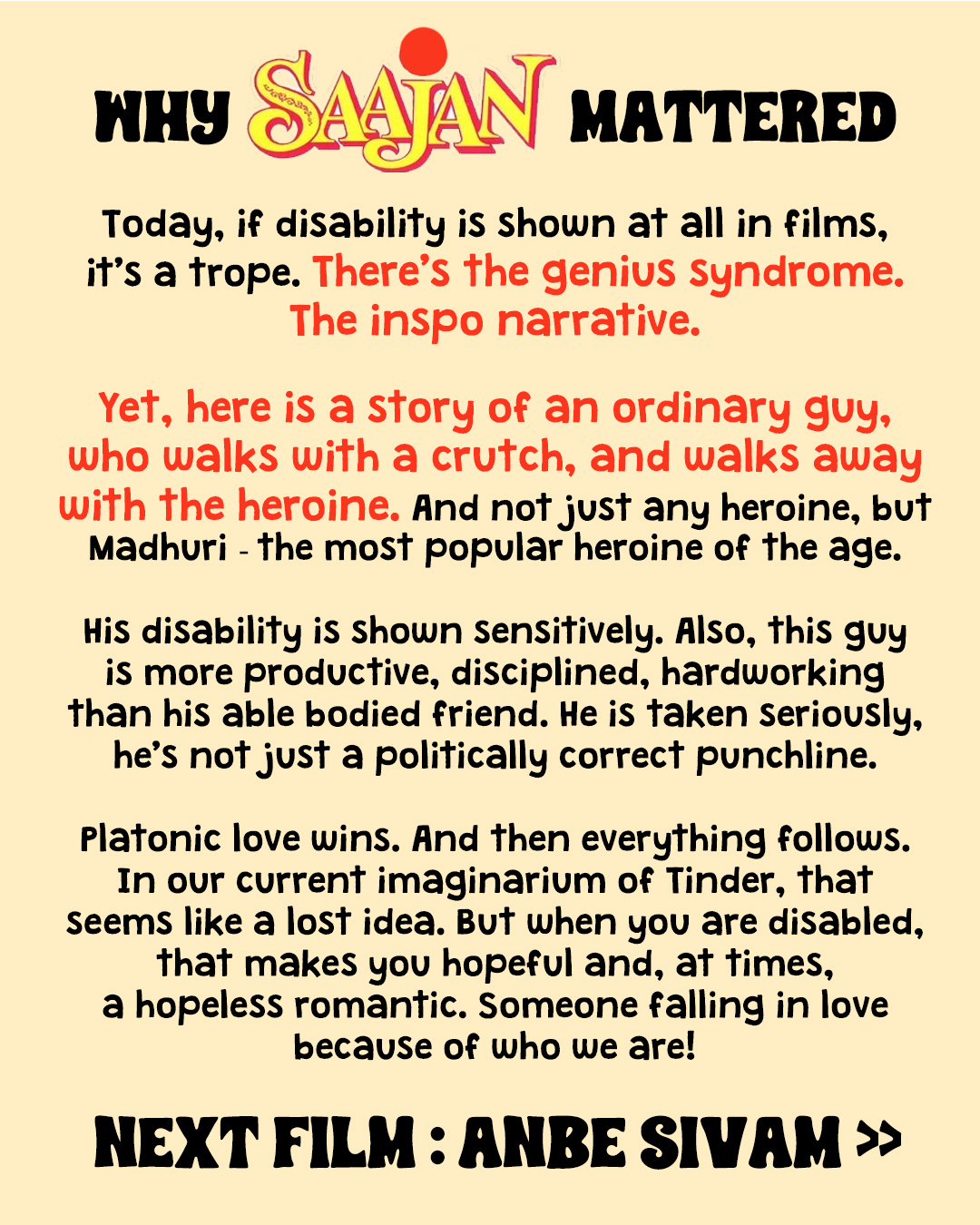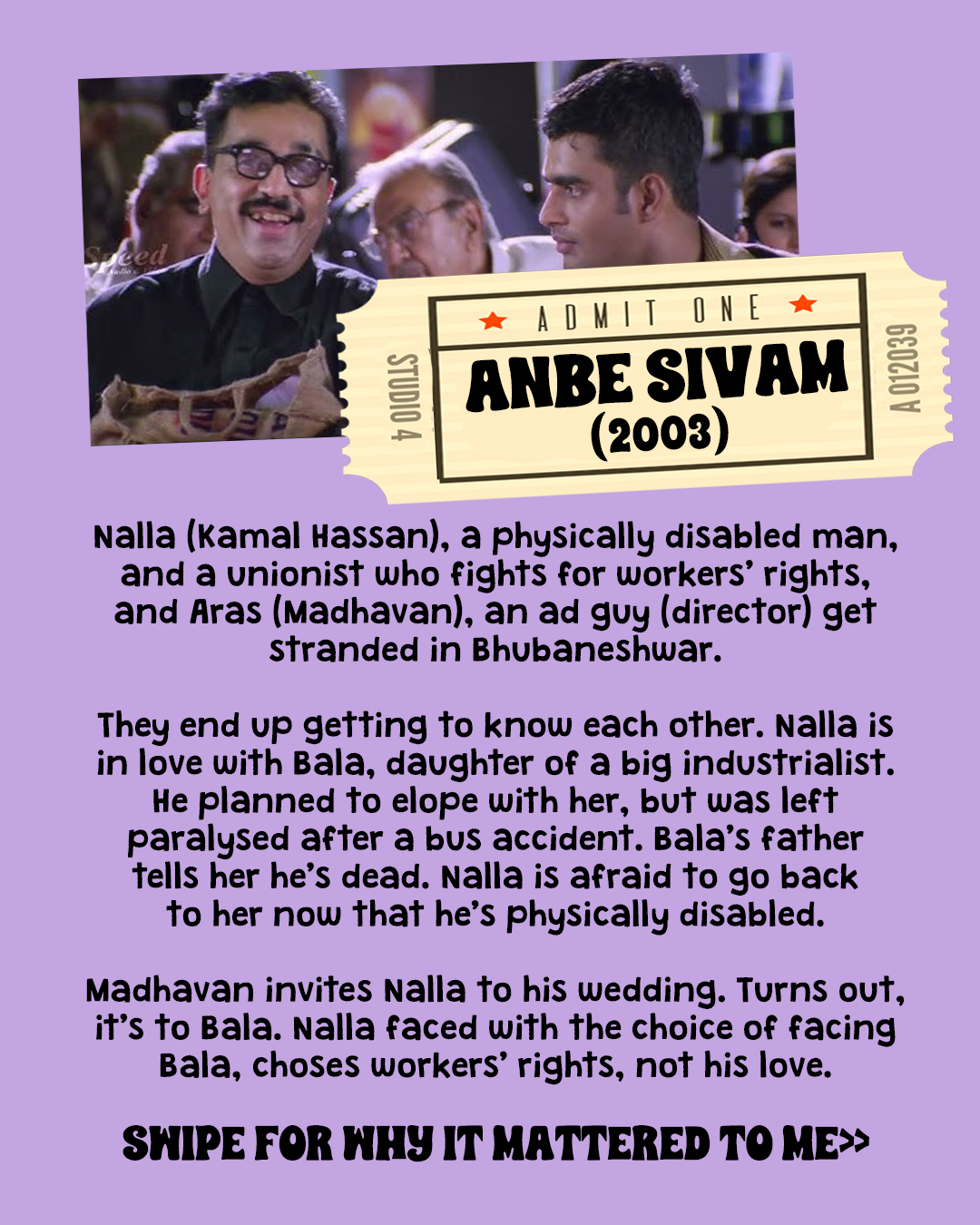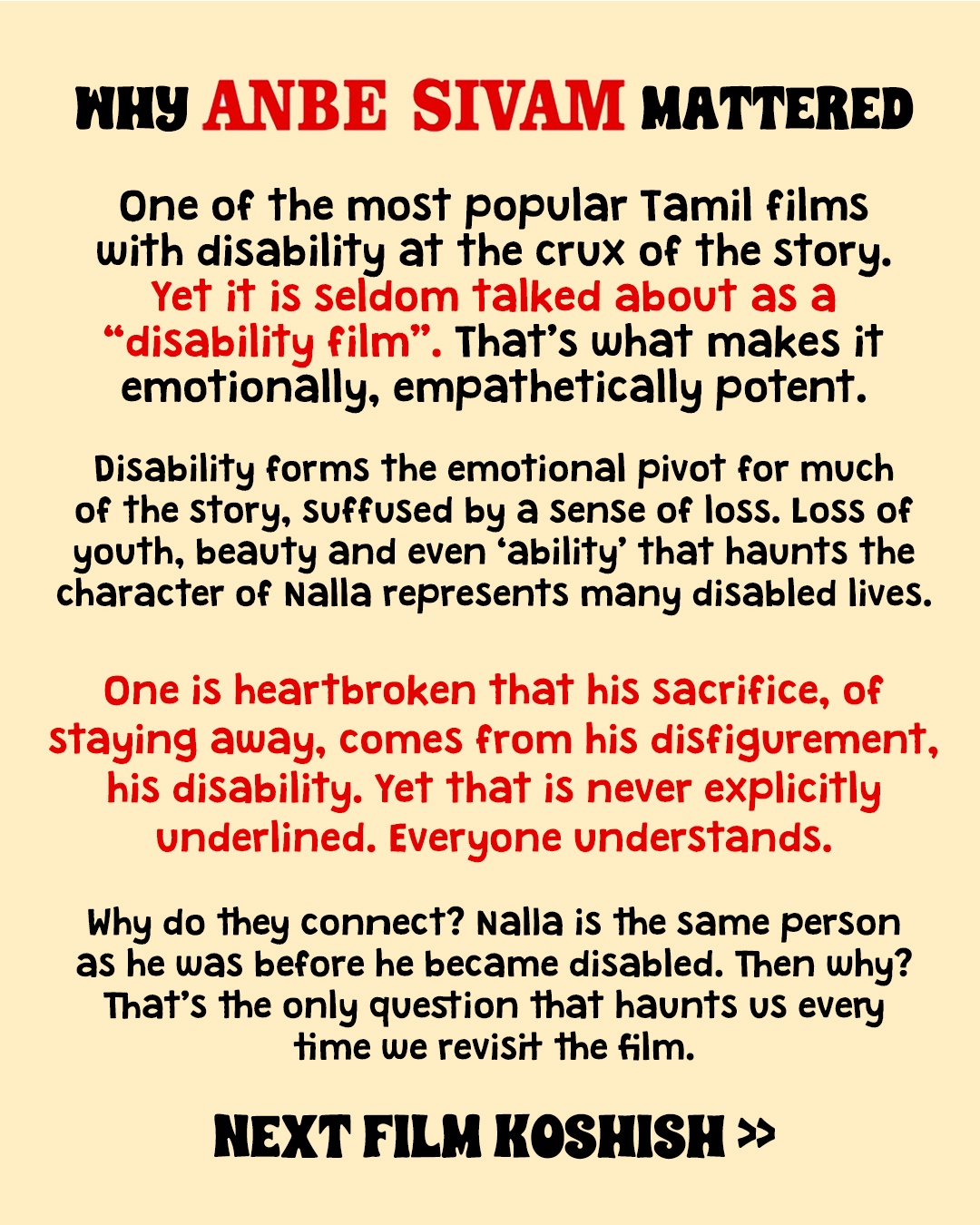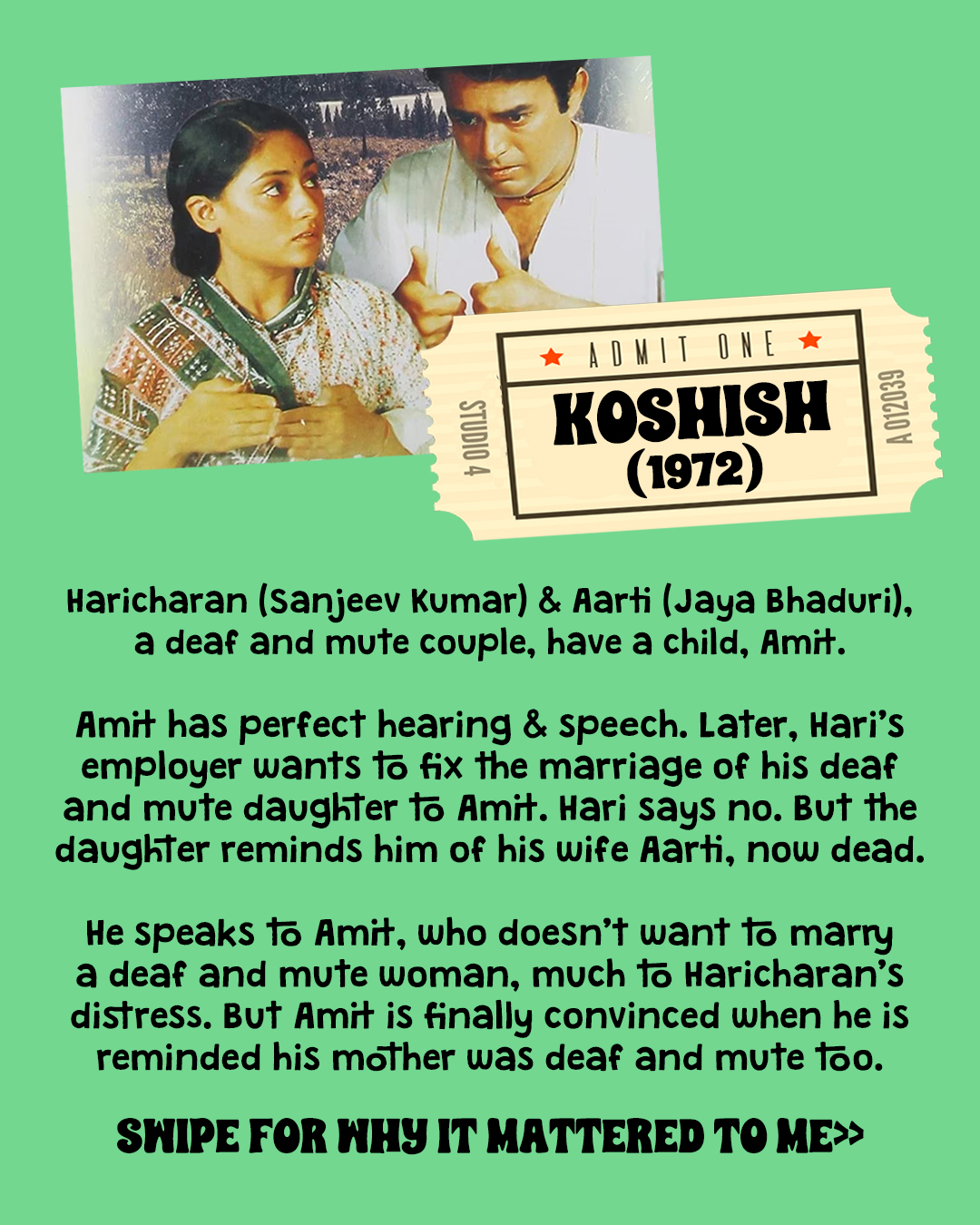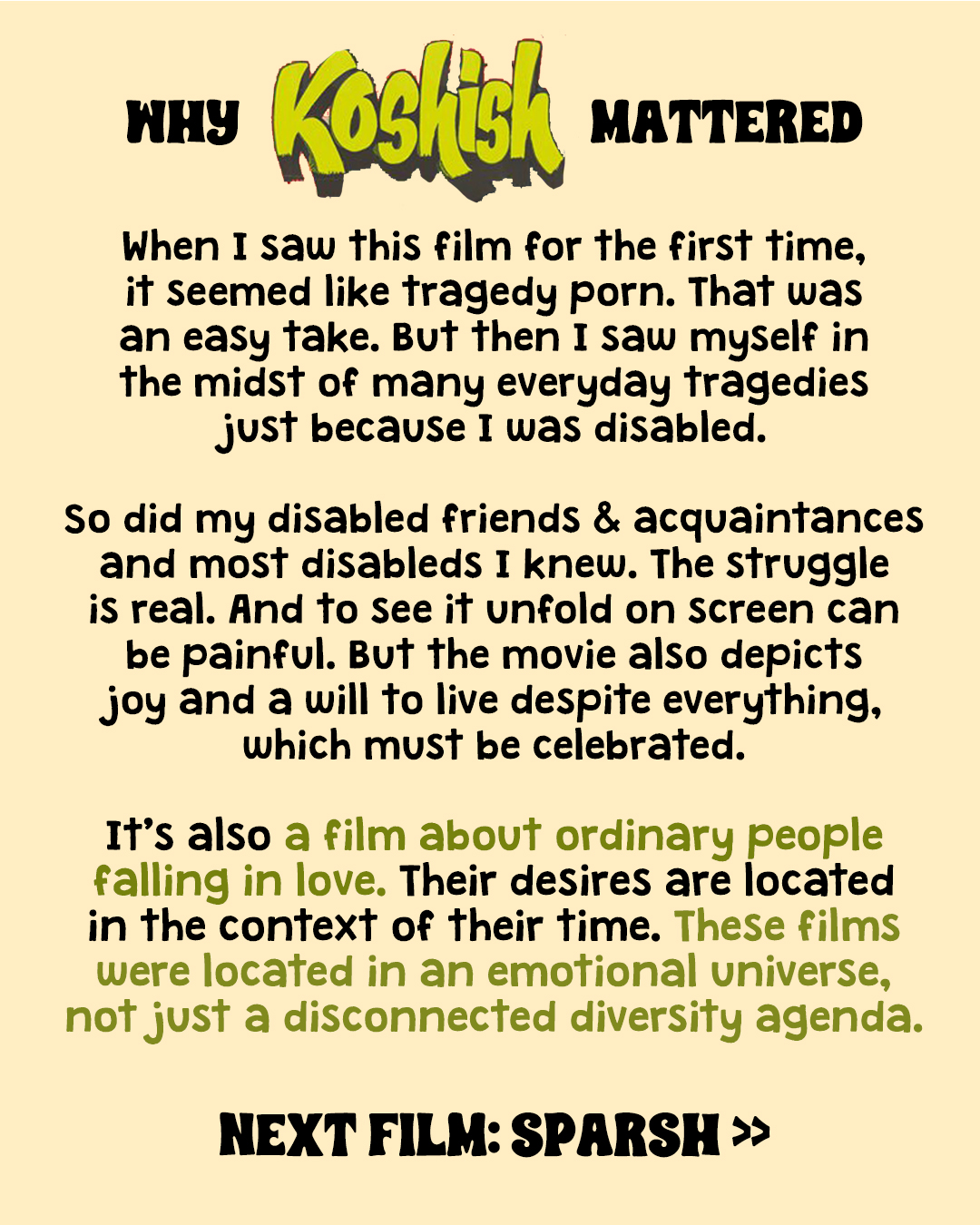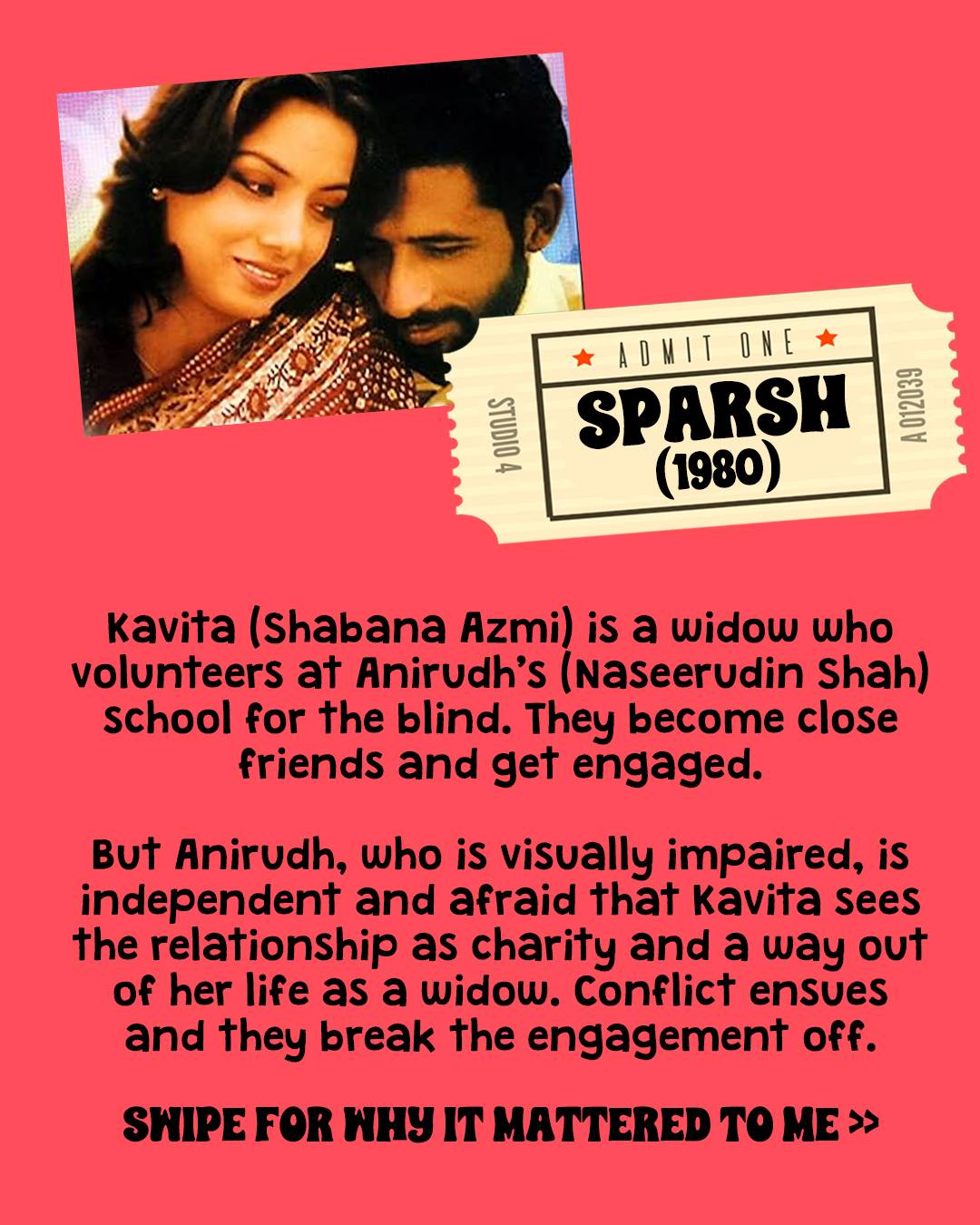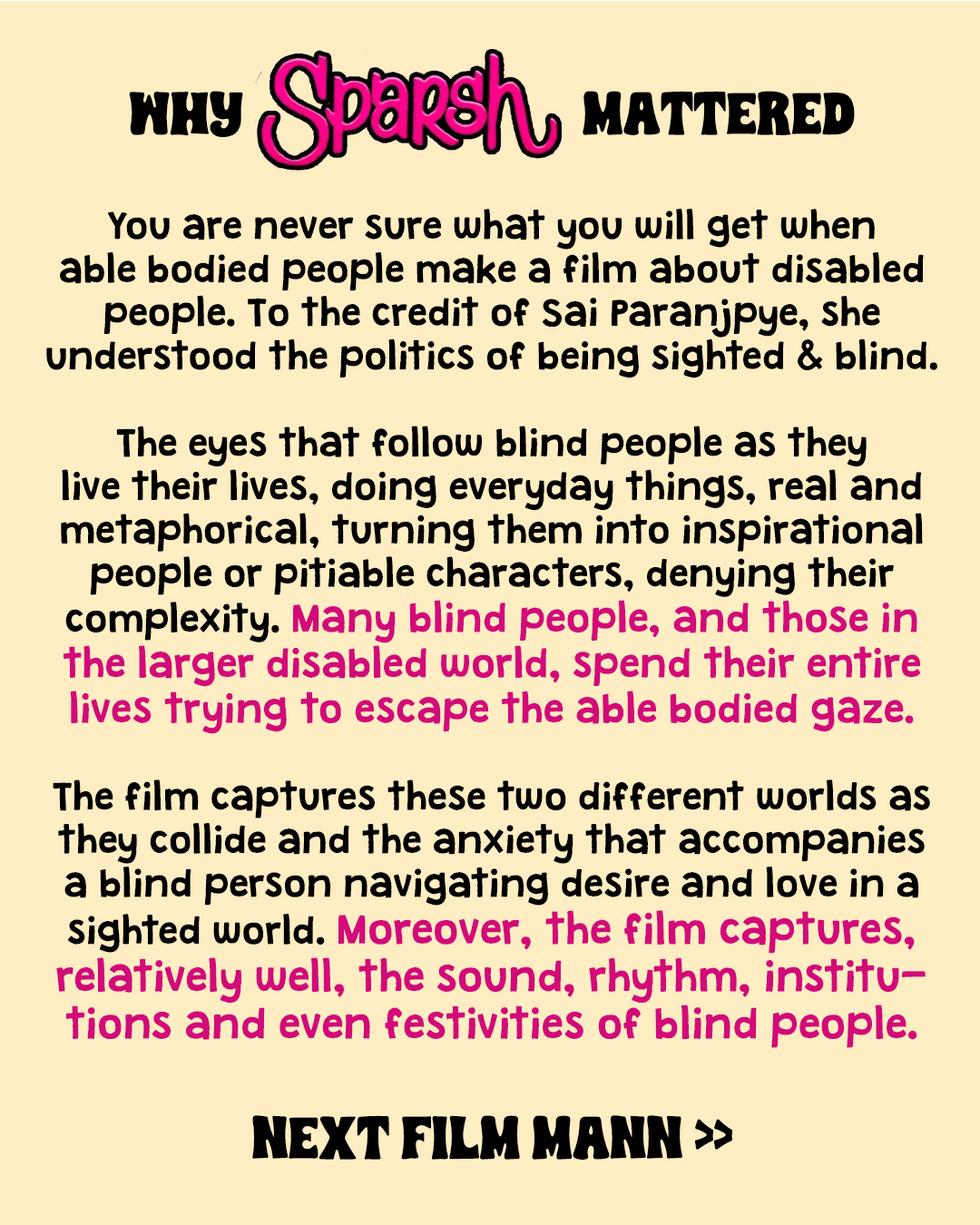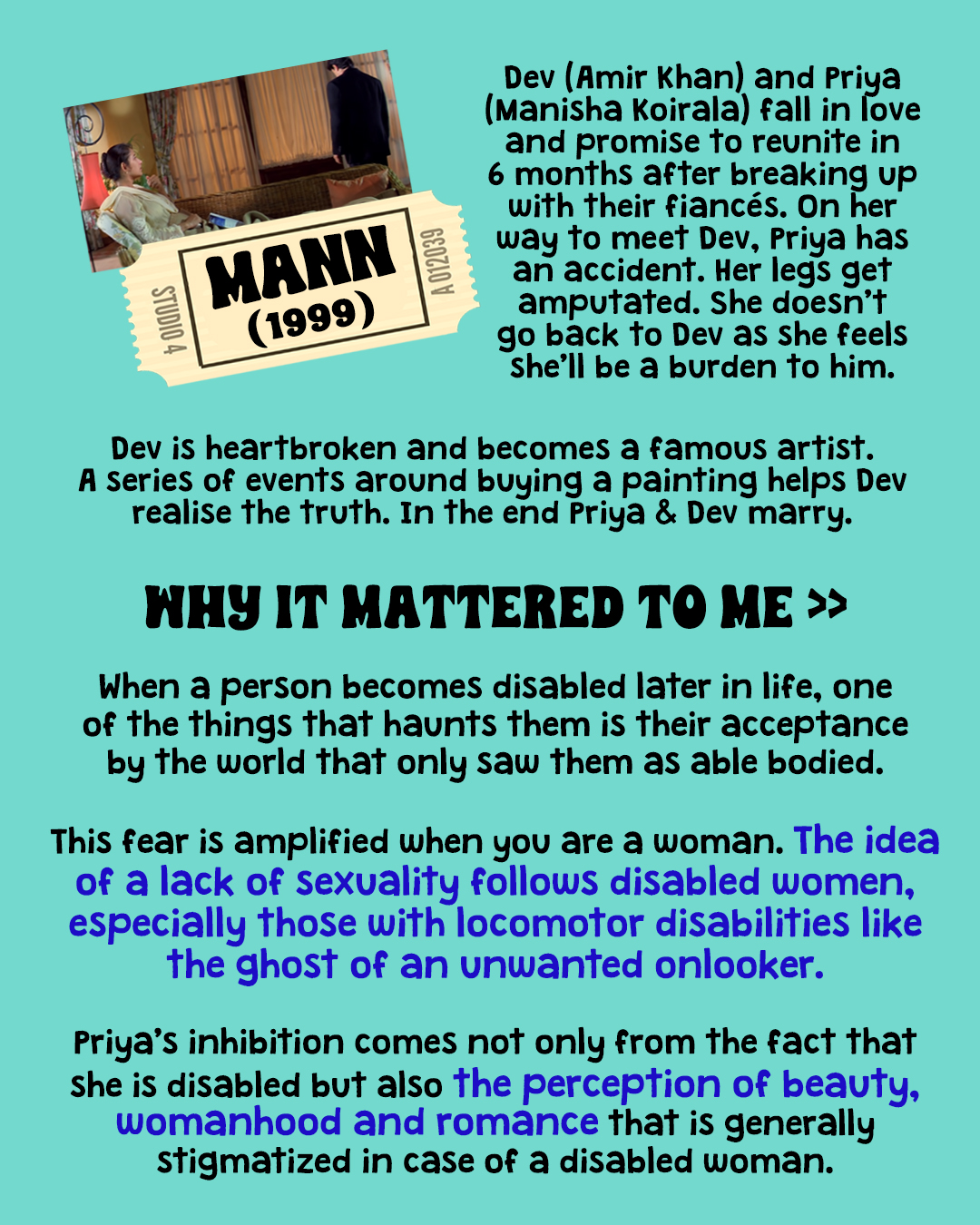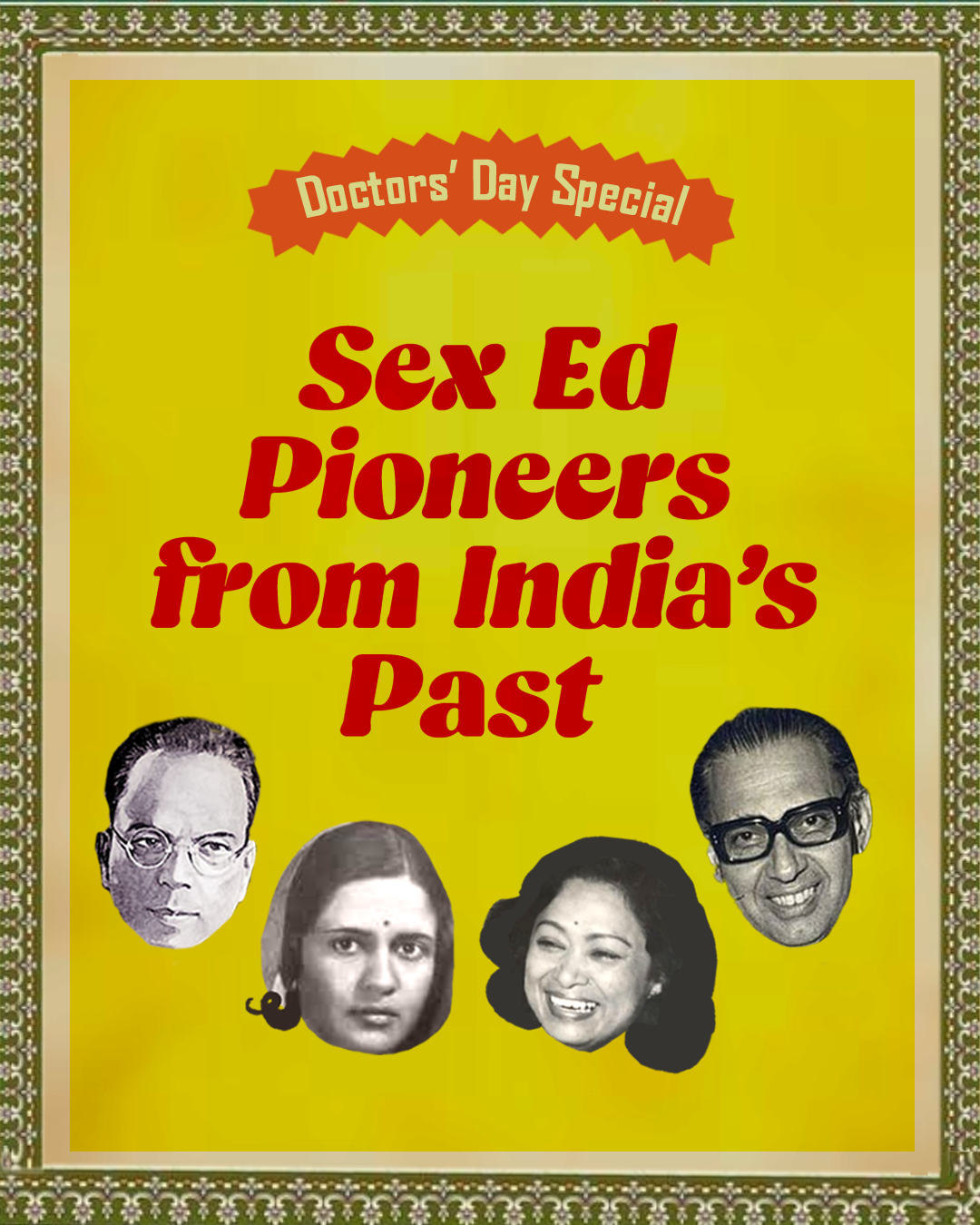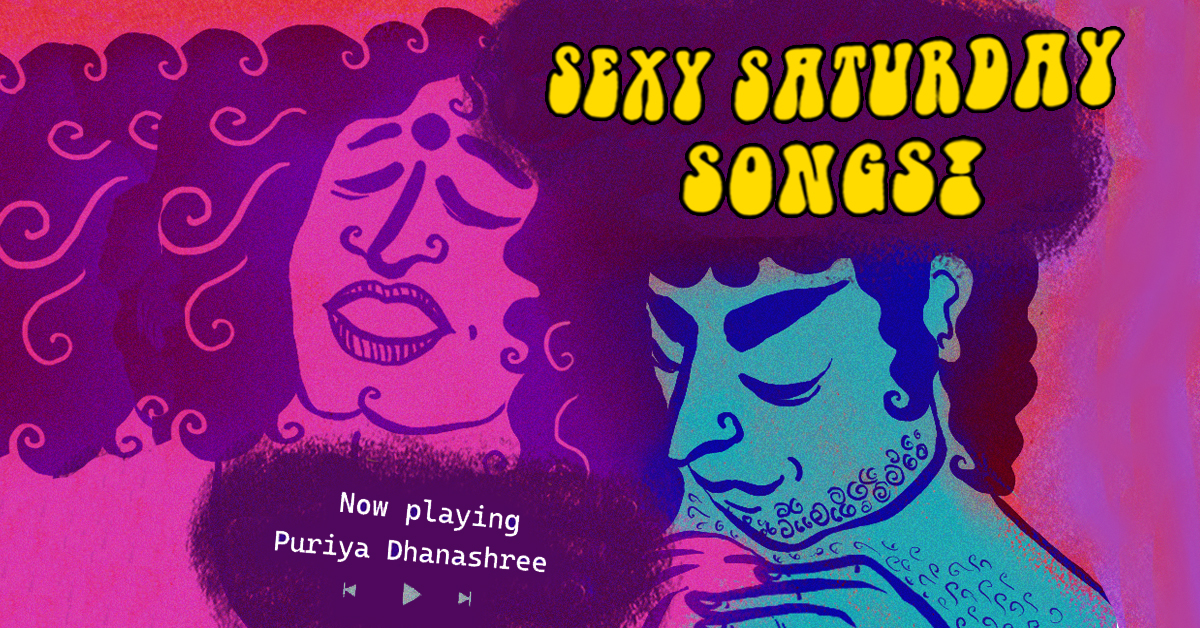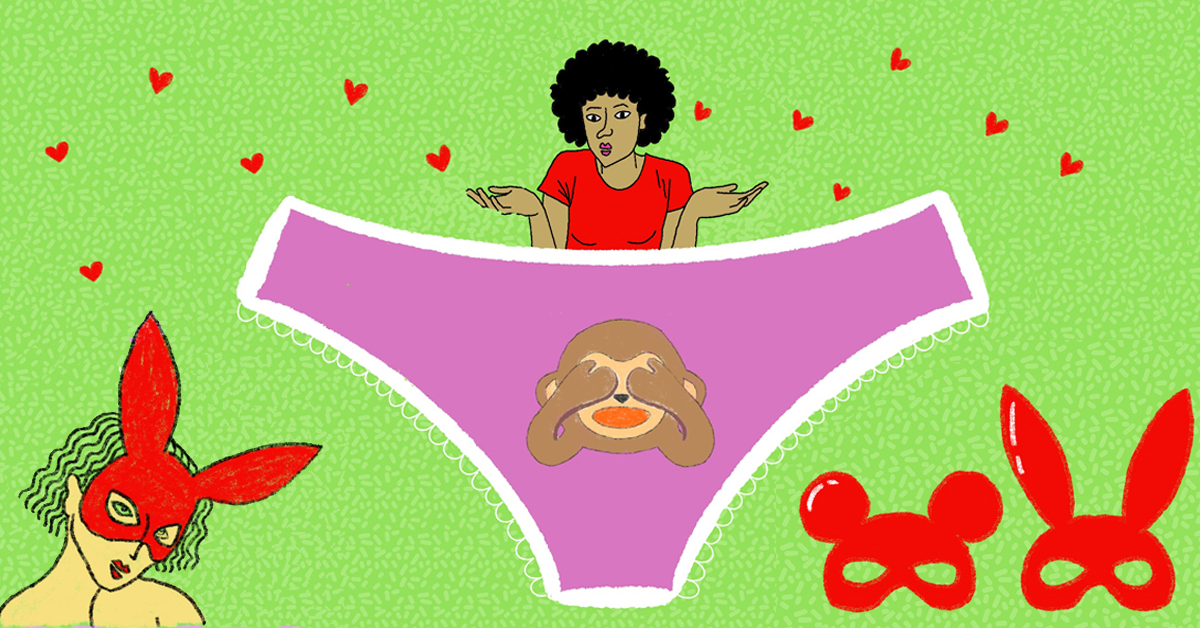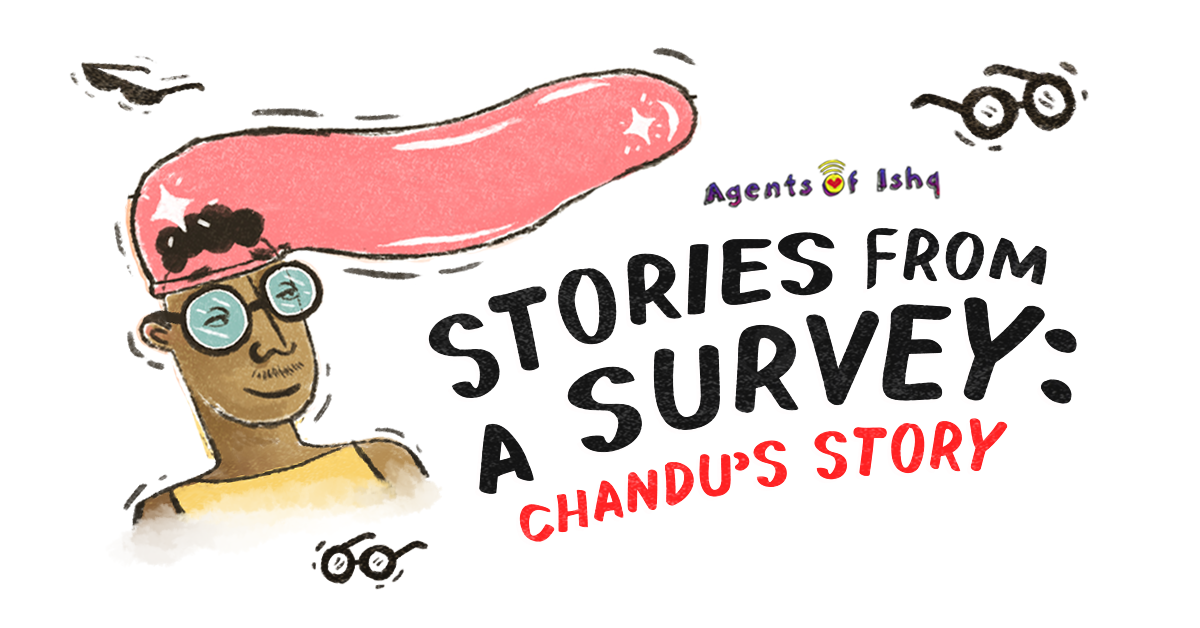Five Indian Films on Disability and why they matter
By Guest Editor Abhishek Annica
Saajan
Disabled guy (Sanjay Dutt), also a poet, falls in love with a woman (Madhuri Dixit) only to realise that his best friend (Salman Khan), whose parents’ supported his education, also loves her.
The girl has fallen in love with the disabled man through his poetry, but doesn’t know of his identity. The able-bodied friend not knowing his friend’s feelings, courts the girl. How will things end?
Why Saajan mattered to me
Today, if disability is shown at all in films it’s a trope. There’s the genius syndrome. The inspo narrative.
Yet, here is a story of an ordinary guy, who walks with a crutch, and walks away with the heroine. And not just any heroine, but Madhuri—the most popular heroine of the age.
His disability is shown sensitively. Also, this guy is more productive, disciplined, hardworking than his able bodied friend. He is taken seriously, he’s not just a politically correct punchline.
Platonic love wins. And then everything follows. In our current imaginarium of Tinder that seems like a lost idea. But when you are disabled, that makes you hopeful and, at times, a hopeless romantic. Someone falling in love because of who we are!
Anbe Sivam (2003)
Nalla (Kamal Hassan), a physically disabled man, and a unionist who fights for workers’ rights, and Aras (Madhavan), an ad guy (director) get stranded in Bhubaneshwar. They end up getting to know each other.
Nalla is in love with Bala, daughter of a big industrialist. He planned to elope with her, but was left paralysed after a bus accident. Bala’s father tells her he’s dead. Nalla is afraid to go back to her now that he’s physically disabled.
Madhavan invites Nalla to his wedding. Turns out, it’s to Bala.
Nalla who realises he’d have to face Bala, choses workers’ rights, not his love.
Why Anbe Sivan mattered
One of the most popular Tamil films with disability at the crux of the story. Yet it is seldom talked about as a “disability film”. That’s what makes it emotionally, empathetically potent.
Disability forms the emotional pivot for much of the story, suffused by a sense of loss. Loss of youth, beauty and even ‘ability’ that haunts the character of Nalla represents many disabled lives. One is heartbroken that his sacrifice, of staying away, comes from his disfigurement, his disability. Yet that is never explicitly underlined. Everyone understands. Why do they connect? Nalla is the same person as he was before he became disabled. Then why? That’s the only question that haunts us every time we revisit the film.
Koshish (1972)
Haricharan (Sanjeev Kumar) and Aarti (Jaya Bhaduri), a deaf and mute couple, have a child, Amit.
Amit has perfect hearing and speech.
Later, Hari’s employer wants to fix the marriage of his deaf and mute daughter to Amit.
Initially Hari says no. But the daughter reminds him of his wife Aarti, now dead. He speaks to Amit, who doesn’t want to marry a deaf and mute woman, much to Haricharan’s distress. But Amit is finally convinced when he is reminded his mother was deaf and mute too.
Why Koshish mattered?
When I saw this film for the first time, it seemed like tragedy porn. That was an easy take. But then I saw myself in the midst of many everyday tragedies just because I was disabled. So did my disabled friends and acquaintances and most disableds I knew. The struggle is real. And to see it unfold on screen can be painful. But the movie also depicts joy and a will to live despite everything, which must be celebrated.
It’s also a film about ordinary people falling in love. Their desires are located in the context of their time. These films were located in an emotional universe not just a disconnected diversity agenda.
Sparsh (1980)
Kavita (Shabana Azmi) is a widow who volunteers at Anirudh’s (Naseerudin Shah) school for the blind. They become close friends and get engaged. But Anirudh, who is visually impaired, is independent and afraid that Kavita sees the relationship as charity and a way out of her life as a widow.
Conflict ensues and they break the engagement off.
Why Sparsh mattered?
You are never sure what you will get when able bodied people make a film about disabled people. To the credit of Sai Paranjpye, she understood the politics of being sighted and blind.
The eyes that follow blind people as they live their lives, doing everyday things, real and metaphorical, turning them into inspirational people or pitiable characters, denying their complexity. Many blind people, and those in the larger disabled world, spend their entire lives trying to escape the able bodied gaze. The film captures these two different worlds as they collide and the anxiety that accompanies a blind person navigating desire and love in a sighted world. Moreover, the film captures, relatively well, the sound, rhythm, institutions and even festivities of blind people.
Mann (1999)
PLOT - Dev (Amir Khan) and Priya (Manisha Koirala) fall in love on a cruise ship and promise to reunite in 6 months after breaking up with their respective current fiancés.
On her way to meet Dev, Priya gets into an accident. Her legs get amputated. She doesn’t want to go back to Dev because she feels she will be a burden to him. Dev is heartbroken and becomes a famous artist. A series of events involving a painting being bought by Priya, hepl Dev realise the truth. In the end Priya and Dev marry.
Why Mann mattered to me?
When a person becomes disabled later in life, one of the things that haunts them is their acceptance by the world that only saw them as able bodied.
This fear is amplified when you are a woman. The idea of a lack of sexuality follows disabled women, especially those with locomotor disabilities like the ghost of an unwanted onlooker.
Priya’s inhibition comes not only from the fact that she is disabled but also the perception of beauty, womanhood and romance that is generally stigmatized in case of a disabled woman.

